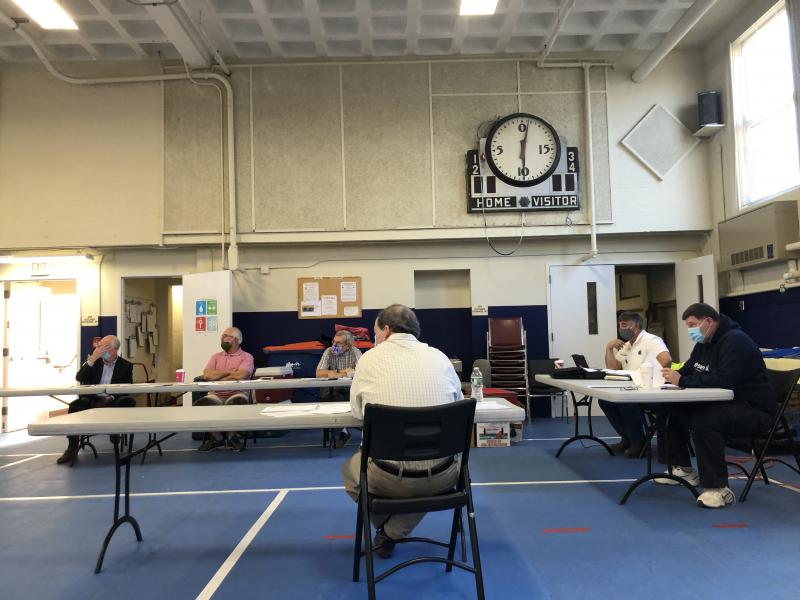Waste District to allow Wareham to lease, operate Rte. 28 transfer station
A contract that would allow Wareham to operate the Rte. 28 transfer station in Rochester starting on Jan. 1, 2021, has been drawn up by the committee governing the Carver Marion Wareham Regional Refuse Disposal District.
If Wareham’s Board of Selectmen signs the contract, that will guarantee Wareham residents who purchase stickers access to the transfer station in the new year — the first concrete solution to the town’s trash dilemma. Carver residents would also be allowed to purchase stickers for transfer station access, and Rochester residents may also be allowed to purchase stickers.
The details of a proposed curbside trash pick-up program are still being worked out.
Since the 1970s, Wareham has been part of a district with Marion and Carver that received free trash disposal through Covanta-SEMASS in exchange for letting that company dispose of waste in Carver’s landfill. That agreement comes to an end on December 31.
While Marion will continue operating the Benson Brook transfer station for its residents only and continue offering town-wide curbside pick-up, Wareham and Carver officials have had to figure out new solutions for waste disposal in their towns. Marion voted at its Nov. 5 Town Meeting to exit the district.
The committee that governs the district drew up a contract that would allow Wareham to lease the land and equipment at the Rte. 28 transfer station for a nominal fee of $10 per month. The contract is a year in length with an optional six month extension. The short term of the contract was chosen to make sure residents had continuous access to waste disposal while giving Wareham flexibility to make different, more permanent plans if the current plan doesn’t prove to be satisfactory. The town could also choose to negotiate a more long-term contract to continue operating the Rte. 28 station when this contract comes to a close.
The contract stipulates that the rules of the transfer station, including what is or isn’t accepted and opening hours, will be the same for residents of Carver and Wareham.
At the meeting, Wareham Town Administrator Derek Sullivan asked if Wareham could subsidize the sticker price for its own residents and charge a more expensive, unsubsidized cost-per-sticker for residents of other towns. The district’s attorney said that would be allowed.
Wareham plans to run the transfer station with a pay-as-you-throw system. That means that the cost of the sticker granting access to the station would cover the operating costs of the station. Residents would be charged separately as they disposed of waste to cover the costs of that waste disposal. While some towns use special town garbage bags sold at a higher price, Wareham is leaning towards a punch card system that would likely look similar to those used by coffee shops to reward frequent customers. Residents would purchase a punch card that would be priced to cover the cost of disposing of a set amount of waste. Each time residents went to the transfer station, an attendant would punch out the marks corresponding to the amount of waste brought by the resident, i.e. one punch for each 30 gallon trash bag. Recycling would be free.
It is unclear how much these punch-cards would cost, how waste will be measured as it is disposed of, or where residents will be able to purchase these cards.
It is unclear at this point how much transfer station access stickers will cost for residents of Wareham, or where residents would purchase stickers. It is also unclear when or whether the town’s proposed curbside trash pick-up plan will go into effect.
Originally, the town planned to charge a set amount for curbside pick-up and transfer station access with an option allowing those interested to opt out of curbside pick-up and purchase only a transfer station sticker. It has not been made clear how the town planned to charge for the services or what the procedure for those wishing to opt out of curbside pick-up would be.
In the past, transfer station access stickers have been sold by the Department of Natural Resources.
Wareham and the district’s attorney are working on figuring out how to obtain insurance coverage for the land and equipment in the most cost-effective way.












